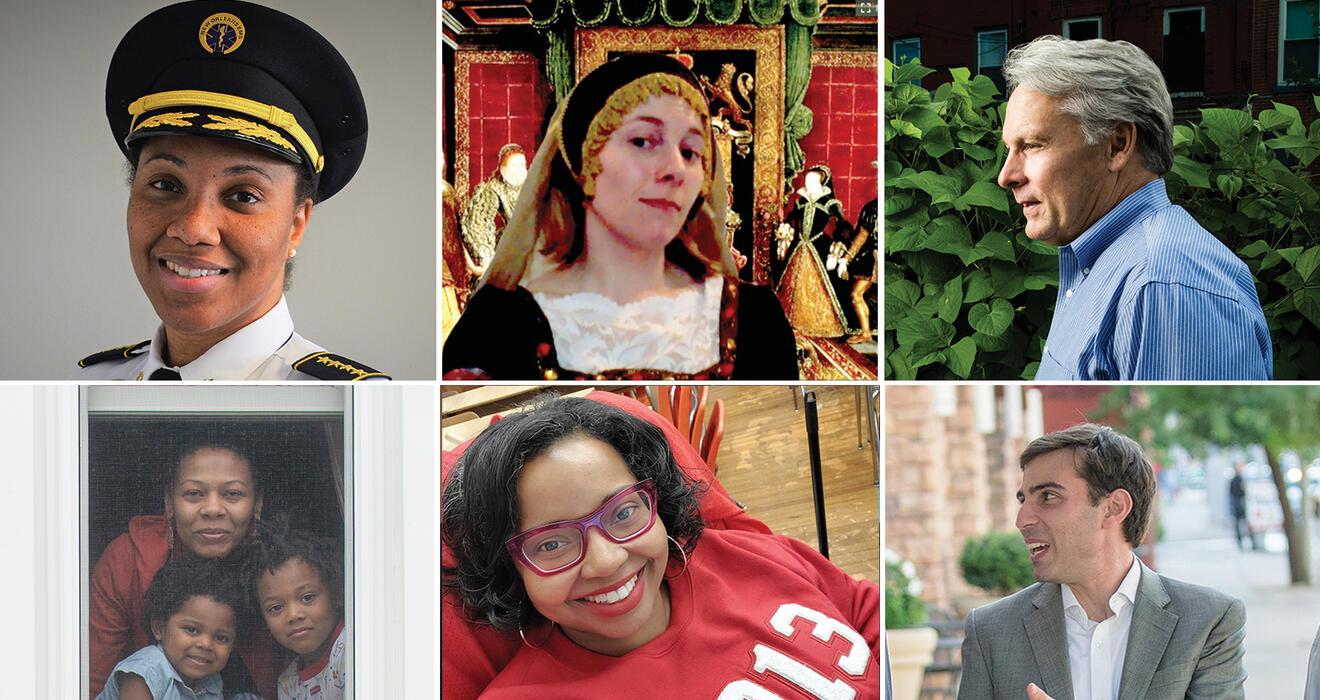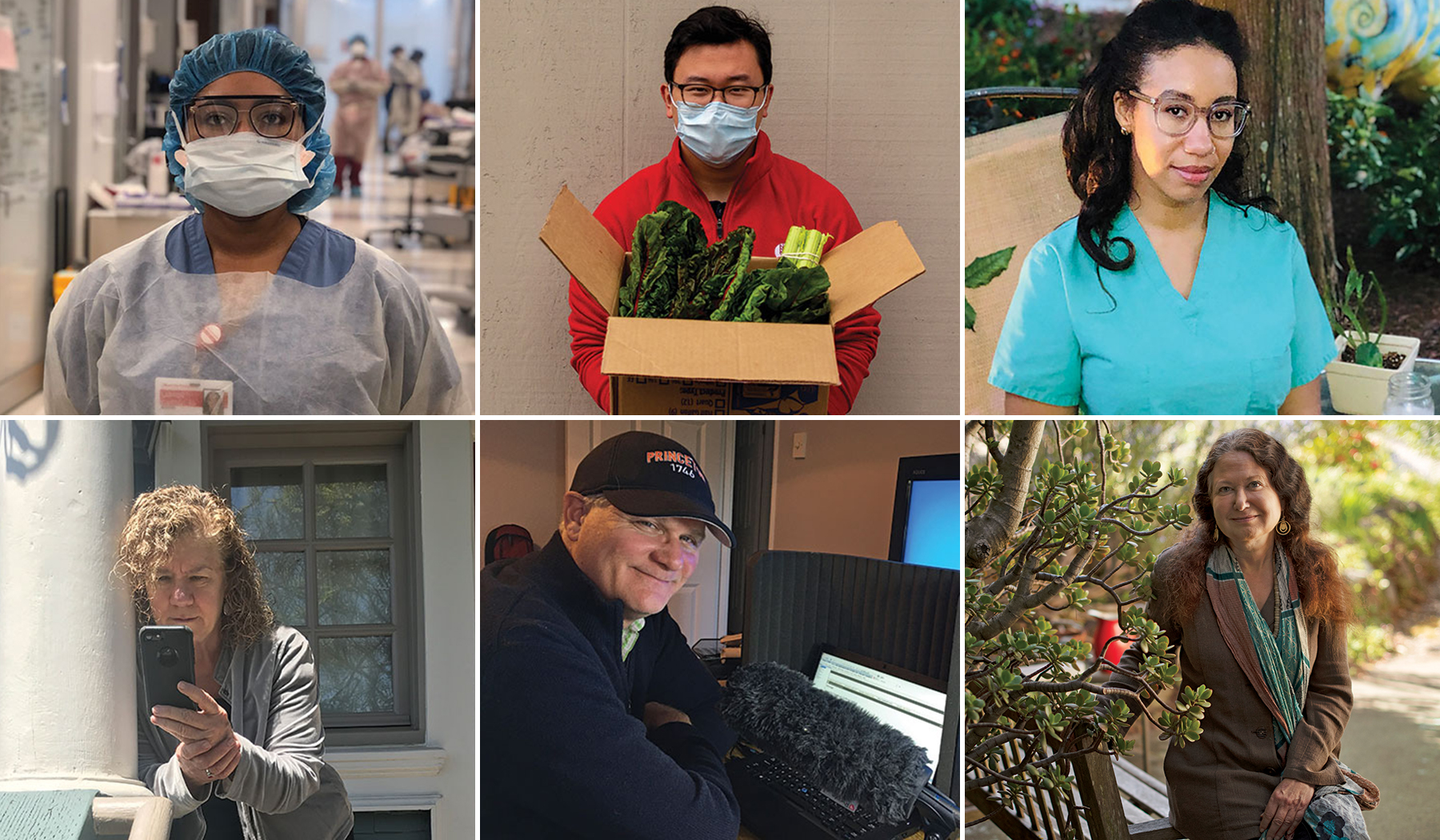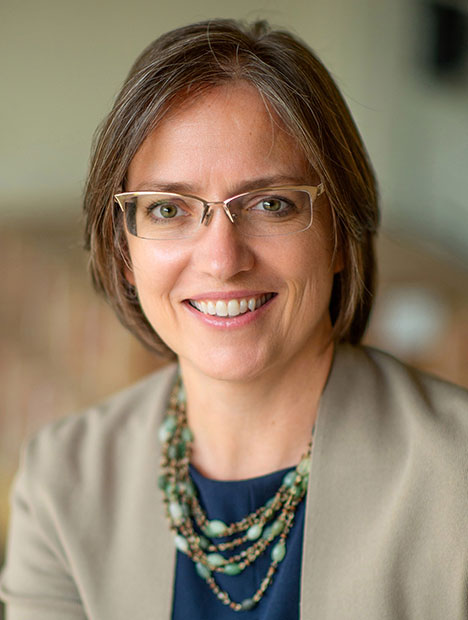
Dispatches From a Pandemic
PAW reached out to alumni who are on the front lines of the COVID-19 crisis or are affected by it in different ways. Here are some of their contributions; more essays will be published here and in PAW’s print issues. Write to us at paw@princeton.edu with your own story.
Theola DeBose ’96 finds frustration in homeschooling her four children, but also an unexpected gift in the time together.
Jesse Max Creed ’07 watches Los Angeles build on his work housing homeless veterans during the pandemic.
Emily Nichols ’99 adapts her emergency medical staff to COVID-19, moment-to-moment, and takes inspiration from first responders.
Elyse Graham ’07 turned to TikTok and YouTube, costumes and humorous performance to keep her college students engaged.
Marty Johnson ’81 pivots his development and environmental nonprofit in Trenton to protect residents from the coronavirus.
Jacklyn E. Bruce ’99 teaches students in her Richmond public school district to learn from periods of historical disruption.
Lauren Edmonds ’10, a nurse in a New York intensive-care unit, struggles to maintain perspective when “no cough is benign and no symptom innocuous.”
Anthony Shu ’16, marketing coordinator for a Bay Area food bank in California, confronts overwhelming need since sheltering-in-place began.
Amanda Satterthwaite ’10, a physician in New Orleans, Lousiana, wishes she felt like she was “saving lives instead of supporting organ systems until I can’t support them anymore.”
Constance Hale ’79, a California journalist and author, adjusts to a locked-down world, racing to Costco in nitrile gloves and wishing she could keep her mother company.
Frank Langfitt ’86, NPR’s London correspondent, learns how to tell stories from the pandemic, on foot and bike, using a 10-foot extendable boom microphone.
Jane Hirshfield ’73 tells her story of inner struggle through a poem, “Today, When I Could Do Nothing.”






4 Responses
K. Gage Parr ’91, M.D.
5 Years AgoFront-Line Service
Greetings from the Department of Anesthesiology and Critical Care Medicine at George Washington University. We have two Princetonians in the department: Kat Diaz ’12, M.D., at left above, and Gage Parr ’91, M.D. We have been fortunate not to have an unmanageable surge of patients, enough PPE and great leadership. All in all, we feel quite lucky in this crazy time.
Vinayak Venkataraman ’11, M.D.
5 Years AgoDispatch From the ICU
This week, I spent my days with patients who wouldn’t wake up. We patted. We prodded. We rubbed. We yelled. “Can you hear me?” Their lungs survived COVID’s rampage. Their ventilators weaned low, their sedation finally shut off. Their minds, however, failed to reignite. It would take weeks to know if they ever would. Until then, we’d see squints or grimaces. They’re fleeting. We later see nothing.
This week, I spent my afternoons in devastation. Informing sheltered-away families about their lonely loved one’s day. Most weren’t getting better, or worse. They lived in a limbo of sustained slumber, able to breathe but not able to protect their windpipe. Explaining “Trach & PEG” by phone was a daily linguistic and emotional challenge I never want again. One patient’s sister asked, “Is he suffering?” I didn’t know how to answer.
This weekend, I await the parade of Zoom. One silver lining of COVID has been renewed connection with distant family and friends. They’ll ask how I am. I’ll deflect. I won’t tell about the nightmares, where I’m on the receiving end of those afternoon calls, being updated on them. The thought too grave for my imagination to bear. I wake up, sweating.
Vinayak Venkataraman ’11, M.D.
5 Years AgoWeathering the Storm
Following up on the letter published in the June/July 2020 issue, I wrote a recent reflection a Massachusetts General Hospital event:
When I've needed strength these past few months, I've looked to the House Staff of Mass General Hospital. Our collective response has inspired.
Battling COVID has left us with indelible wounds, but also with renewed purpose and connection. We didn’t ask for this, but we didn’t shy away. We stepped up. We were called to serve in different roles and came together with unified objective. Many non-internists and non-intensivists became both overnight. New floors and units were created each day. Residents and nurses who had never met worked together, side-by-side. I led a team of pediatric interns and worked with pediatric nurses as we cared for sick adult patients. I’ve worked on a surge ICU team composed of pulmonology attendings, cardiology fellows, medical residents, surgical ICU nurses and respiratory therapists, and neurology floor nurses and physical therapists.
We’ve felt joy as we’ve seen some (slowly) recover and go back home. We’ve also felt sadness and isolation in unprecedented amounts. We’ve called families who suffer from afar, unable to see their loved ones in the flesh. Until their last breaths. We’ve explained complex decisions, such as resuscitation, intubation, and tracheostomies, by phone. We’ve witnessed intractible injustices and inequalities as vibrant, diverse communities were hit hardest. We sometimes cared for entire families on the same unit. We’ve gone to work fearing for our safety, the safety of our colleagues, and the health and wellness of our loved ones at home.
Despite all we have witnessed, we’ve refused to become desensitized. We’ve worked together to maintain our collective humanism and enduring spirit. We’ve done so much to keep each other afloat and push each other forward. Though we are returning to new normalcy, we don’t know when this tragedy will be over. But whether weeks, months, or years, from what I have seen, I have no doubt the House Staff of Mass General will weather this storm together.
Ruth Walter ’88
5 Years AgoA Legislator’s Perspective
As a new county l egislator sworn in on Jan. 6, 2020, I just had time to figure out the layout of the Board Room, stash gum in my desk drawer and choose whether to say “aye” or “yes” to vote for the cascade of bills coming out of the legislative process before COVID-19 shut down the normal functioning of the Westchester Board of Legislators in mid-March 2020.
egislator sworn in on Jan. 6, 2020, I just had time to figure out the layout of the Board Room, stash gum in my desk drawer and choose whether to say “aye” or “yes” to vote for the cascade of bills coming out of the legislative process before COVID-19 shut down the normal functioning of the Westchester Board of Legislators in mid-March 2020.
It was two-plus years of hard campaigning that brought me to this new job. Campaigns are whirlwinds of fundraising, knocking on doors and shaking hands at train stations, and there must be a quiet time after election, a settling in and a satisfaction of a race well run, right?
Not exactly.
As a new legislator in COVID-19, it’s like reading the manual while flying the airplane. No one in office has seen a shutdown like this before, and lives and livelihoods are at stake.
Westchester County was hit first and hard by New York’s COVID-19 outbreak. We have watched our cases spike and our hospital staff bear the brunt of new practices and a rush of patients. Disparities in income and race are exacerbated, and our food pantry lines are long. Mental health is suffering as we see the weeks grow into months indoors with family, apart from friends and colleagues. New Yorkers are productive people, and it’s stressful mentally as well as financially to stay put.
Still, Westchester is known for community cohesiveness, for volunteerism and for trust in local government. We wear masks and we social distance and we learn to cook at home. Children are riding their bicycles after online classes end for the day.
As we adjust to a possible long-term change in the economy and look to our national leaders to support the states hit hardest by COVID-19 (as billions have always flowed to states afflicted with fire, flood, and earthquakes), I am privileged to be a voice for my 55,000 constituents. Steering our communities through this experience requires coordination, cooperation and bipartisan goodwill. Westchester will emerge stronger as we practice good governance and craft good policies for the future.